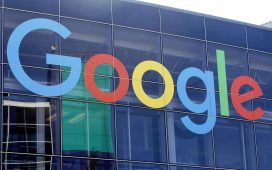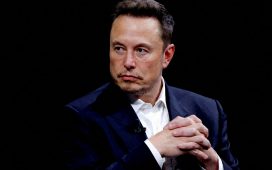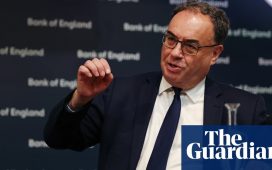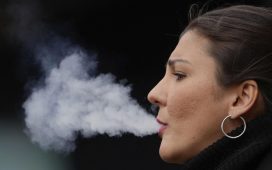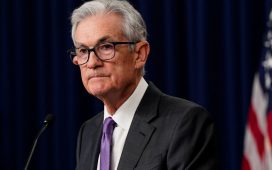TAIPEI, Taiwan — Like other presidential hopefuls in Taiwan, Terry Gou has spent the past few weeks working on his public image by carrying toddlers, wrapping dumplings and helping farmers.
Unlike the other candidates, he is a billionaire, the chairman of Foxconn, a major Apple supplier that operates vast factories in China. He has also pressed the flesh with President Trump, who told him, Mr. Gou says, that being president is a “tough job.”
Should Mr. Gou become Taiwan’s president, Mr. Trump would have a lot of say over what might be the toughest part of his job: striking a delicate balance between the interests of the United States and China, especially as the two giants fight a bruising trade war.
On Friday, Mr. Gou handed over the reins of his sprawling electronics manufacturing empire to a new Foxconn operating committee to address potential conflicts of interest as he runs for president. He built Foxconn and amassed a personal fortune of $7 billion by skillfully straddling the gap between China and the United States. For years Foxconn has assembled the iPhone in China, helping make Apple what it is today and becoming China’s biggest private-sector employer at the same time.
Should he become Taiwan’s president, he will have to strike that balance on an even bigger scale. Mr. Gou has said Taiwan must tread carefully to avoid being trampled in the trade dispute between Beijing and Washington, especially as the United States has stepped up its support for Taiwan as a counterweight to China’s growing dominance in the region.
“If we are too optimistic and biased toward either side,” Mr. Gou wrote in a recent Facebook post, “it will push Taiwan to an unpredictable danger.”
What has been good for business might not be good for Mr. Gou’s political prospects in Taiwan, which is wary of China’s influence. Mr. Gou has cultivated good ties with Communist leaders for decades and has met Xi Jinping, China’s leader, several times. His business’s dependence on China is seen as offering Beijing leverage over him. Critics have questioned whether he would put Taiwan’s interests first when handling cross-strait matters.
Mr. Gou has moved to try to address those concerns. In addition to handing over management of the company, he has also suggested that Foxconn could move some of its production lines from the Chinese cities of Tianjin and Shenzhen to the city of Kaohsiung in southern Taiwan.
Even if Foxconn does relocate parts of the company from China to Taiwan, it would not amount to a decoupling from the Chinese market, said Lauren Dickey, an expert on China-Taiwan relations at CNA, a research firm in Arlington, Va. “The question, then, is whether these linkages become political risks or liabilities,” Ms. Dickey said.
Some voters who seek a stronger economy might find an appealing candidate in a billionaire businessman who runs a company with hundreds of thousands of employees and has repeatedly won tax benefits and land grants in his negotiations with local Chinese officials. Mr. Gou founded the company in Taiwan in 1974, initially producing components for black and white televisions and Atari joysticks. He opened the company’s first facility in China in 1988, in the southern city of Shenzhen, and later expanded its operations to central and northern China.
But Mr. Gou’s business brought jobs to China, not Taiwan. While doing so, Foxconn has come under heavy scrutiny over its employment practices. In 2010 it was hit by a wave of employee suicides, and in 2012 it admitted to hiring workers as young as 14. And as one analyst sees it, despite having a reputation for being a shrewd businessman, Mr. Gou is not known for delivering value to shareholders.
“Terry Gou has been a ruthless exploiter of local labor, tax breaks, and repeatedly floated fresh stakes in new companies to create equity value,” said Richard Kramer, a founder of the London-based technology research firm Arete. “But these stocks have consistently underperformed the market.” Foxconn representatives did not respond to requests for comment.
Business aside, many other voters are concerned about the question of Taiwan’s sovereignty and how the island’s leadership should manage China’s overtures and threats. China claims Taiwan as part of its territory, but the majority of people in Taiwan want to retain de facto independence.
Mr. Gou is competing to be the presidential candidate for the opposition Chinese Nationalist Party, or Kuomintang, which once ruled China and fled to Taiwan after losing a civil war to the Chinese Communist Party. If he wins the primary, he will run against Taiwan’s president, Tsai Ing-wen, who belongs to the ruling Democratic Progressive Party and is seeking re-election in January’s presidential vote.
The Kuomintang maintains that the government it installed in Taiwan is the rightful ruler of both China and Taiwan. Mr. Gou shares that view and has said he wants to improve Taiwan’s relations with Beijing, which have deteriorated during Ms. Tsai’s presidency. In recent months, however, Mr. Gou has struck a firmer tone with China, urging Beijing to recognize the existence of the island’s government. (A Chinese government spokesman politely rejected Mr. Gou’s statements.)
Ms. Tsai, despite pressure from Beijing, has refused to state that Taiwan and China are both part of the same country. Ties between Ms. Tsai’s administration and Beijing have been tense after the ruling Communist Party in China cut off communications with her over the issue. Beijing has used military, diplomatic and economic measures to intimidate Taiwan and isolate it from the global stage. Ms. Tsai has responded in part by building a closer relationship with the Trump administration.
Zhu Songling, director of the Institute of Taiwan Studies at Beijing Union University, said that, if elected in January, Mr. Gou could re-energize ties across the Taiwan Strait.
For all his friendliness with Mr. Trump, Mr. Gou has also asserted that relying on Washington for the island’s national defense is an unreliable strategy. In April he questioned the need for Taiwan to buy weapons from the United States. Taiwan’s military is currently waiting for approval from Washington for two major arms purchase requests: a $13 billion order including 66 F-16 jets, and a $2 billion order of tanks and other equipment.
China welcomes Mr. Gou’s skepticism over the arms sales, Mr. Zhu said.
“If Gou uses the businessman mind-set practice in politics,” Mr. Zhu said, “he may bring changes to cross-strait relations and the U.S.-China-Taiwan trilateral relationship, and bring some new ideas.”
Mr. Gou still must secure the Kuomintang nomination in July. His main competitors in the primary are Han Kuo-yu, the popular mayor of Kaohsiung, who is regarded as Beijing’s preferred candidate, and Eric Chu, the former mayor of New Taipei City.
Mr. Gou’s similarities with Mr. Trump — his fondness for baseball caps and his forceful and unpredictable style — might appeal to voters who appreciate the American leader’s support for the island democracy.
The day that Mr. Gou met Mr. Trump at the White House in early May, he reassured Mr. Trump that a multibillion-dollar, taxpayer-subsidized factory in Wisconsin was on track. Yet the company is reportedly building a factory that is different from the contract it signed with the state, and might not create as many jobs as he had promised. Wisconsin taxpayers have already foot the bill for hundreds of millions of dollars in land and infrastructure for the project. Foxconn has said it still plans to move forward with the project and will make a variety of products there.
After his meeting with Mr. Trump, Mr. Gou posted photos of baseball caps he gave to Mr. Trump featuring the flags of the United States and Taiwan, and the slogan: “Make America Great Again.”

